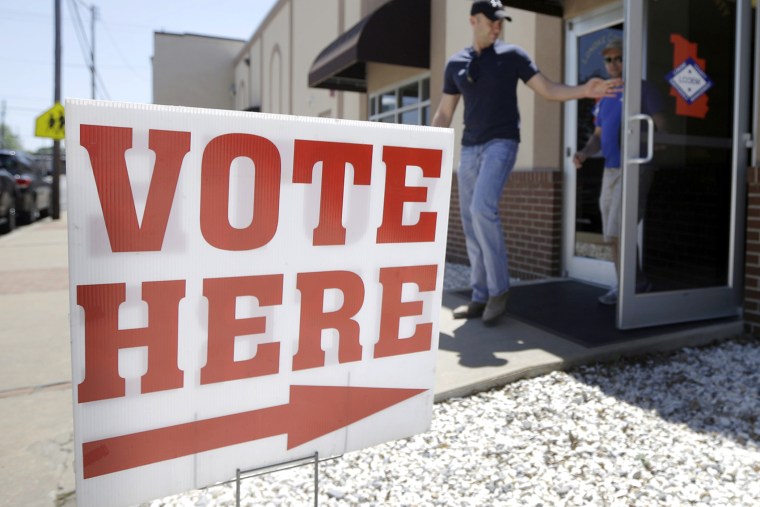Actual, verified instances of voter fraud are extremely rare, but once in a great while, a doozy comes along. An example like this one out of Wisconsin is almost impressive, in a go-big-or-go-home sort of way (thanks to my colleague Tricia McKinney for the heads-up).
Robert Monroe, a 50-year-old Shorewood health insurance executive, was charged Friday with 13 felonies related to his voting a dozen times in five elections between 2011 and 2012 using his own name as well as that of his son and his girlfriend's son. "During 2011 and 2012, the defendant, Robert Monroe, became especially focused upon political issues and causes, including especially the recall elections," the complaint asserts in its introduction.
The WisPolitics.com report said investigators didn't just consider the accused a multiple voter; they consider him "the most prolific multiple voter in memory."
In 2012, for example, Monroe, an overly enthusiastic Republican, allegedly cast five ballots -- that's four more than legally allowed -- in support of Gov. Scott Walker (R) during his recall election. Later that year, he's accused of using one address to vote in Wisconsin, driving to Indiana, and then using another address to vote in Indiana.
And while a story like this pretty striking on its own, there are a couple of larger angles to consider. The first, of course, is that proponents of voter-suppression schemes raise the specter of fraud to impose all kinds of voting restrictions, including voter-ID laws. But in a case like Monroe, the alleged fraud wouldn't have been stopped by the need for identification -- the accused used his real name while casting multiple ballots.
Even if cases like Monroe's were common -- and they really, really aren't -- measures like voter-ID wouldn't affect the "problem" at all.
Second, why is it that every time real-world examples of voter fraud pop up, they seem to include Republicans?
Remember the Nevada voter who cast multiple ballots in the same election because she wanted to test the integrity of the elections system? She was a Republican voter.
Remember the Texas voter who cast absentee ballots on behalf of his girlfriend for the five years after she died? He was a Republican voter, too.
Remember the Indiana secretary of state convinced to voter fraud? Yep, a Republican.
I don't doubt that there are examples from the other side of the aisle, but they just haven't left the kind of impression these amazing cases have.
